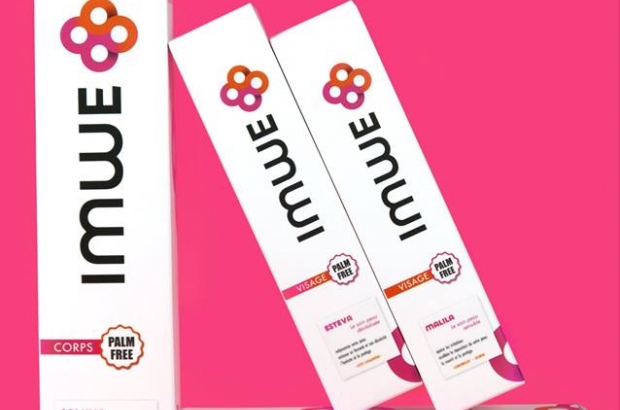- Daily & Weekly newsletters
- Buy & download The Bulletin
- Comment on our articles
5 Belgian products bent on saving the planet
The bright side if you don’t have a Valentine, or if you’re just boycotting the Hallmark holiday all together, is that you can save your money you’d spend on a heart-shaped box of chocolates to make savvier purchasing choices for yourself and – as dramatic as it sounds – for the world as a whole. The fact is the way we spend has a direct impact on our planet – and impact the effects of which we’re starting to feel.
Here are five Belgian companies devoted to keeping their products as clean, natural and carbon neutral as possible.
1. Imwe
A newcomer to the organic cosmetics market, Brussels-based Imwe makes rich, skin-nourishing body lotions that smell good enough to eat, and that are made with enough all natural oils, butters and spices that you almost could.
All Imwe products are palm oil-free, a product linked to enormous amounts of deforestation, environmental degradation and the displacement of communities all over the world, but especially in South-East Asia. And while Imwe lacks an organic label, 20 to 30 per cent of the lotions’ ingredients are certified organic (a higher percentage, Imwe’s website points out, than required by organic labels such as Cosmebio or Ecocert), including all of the oils and butters used. Any non-natural products are ones permitted for use under organic labelling standards.
You can buy Imwe lotions online through the website or at several natural stores including Färm or at yoga and holistic living centres such as Yyoga or Zen Yoga / Zen Mom.
2. Ecover
Arguably Belgium’s most successful environmentally friendly company, Ecover started in 1980 in a small cottage in Malle where founder Frans Bogaerts was seeking to create a phosphate-free washing powder that wouldn’t pollute local water sources. Today, the Belgian company, which still has its factory in Malle, makes a whole line of plant- and mineral-based laundry and dish detergents, personal care items and cleaning products that can easily be found in any supermarket in Brussels.
Besides making cleaning solutions that protect the environment, Ecover gives important thought to its packaging. Its plastic bottles are made out of sugarcane instead of petroleum-based plastic. Plus, there’s no need to throw your bottles away when they’re empty. Several natural foods stores in Brussels, such as Natural Corner, carry large vats of Ecover detergents from which you can refill your old bottles to avoid producing more landfill waste.
3. Honest By by Bruno Pieters
Not a product, per se, but a website, Honest By is where to go for statement-making designer clothes made out of natural, responsibly sourced materials. The pet project of Antwerp designer Bruno Pieters, Honest By claims to be “creating a new paradigm in fashion” by featuring slew designers who use organic and natural materials and who have transparent business, sourcing and production practices.
All designers are carefully researched to ensure that they are fully committed to producing sustainable, high fashion creations. They don’t deal in leather, fur, shells or horns. While they do sell items made of wool and silk, these are certified organic, and they also offer a range of vegan (read: animal product-free) designs as well.
One of the most appealing – and perhaps the most paradigm shifting – aspects of Pieters’ project is his devotion as a designer to creating products meant to be worn longer than a single season. By creating luxury, couture versions of wardrobe mainstays, such as trench coats or jeans, Honest By pushes back against fashion’s unsustainable attitude of discarding months-old, past-season pieces for the latest looks.
4. Cantillon Brewery
While most will know Cantillon as Brussels’ charming homegrown maker of face-puckering-yet-ever-refreshing geuzes, krieks and lambics, some may not realise that the Anderlecht brewer has been nearly 100 per cent organic since 1999.
The family-run company explains its decision to go organic as one of tradition: it simply made sense for a business so bent on creating a product that’s authentic to its origins to use grains that were as natural as possible. So, while some of Cantillon’s fruit beers are not entirely organic, you can rest assured that the rest of its line is.
5. Libeco linens
Ecological. Local. Biodegradable. Zero waste. Carbon neutral. Libeco’s line of organic linen housewares hits all the markers of a planet-friendly sustainable product. While cotton is king is much of the world, linen is made from flax seed fibres. Luckily for Libeco, which has been making its durable, elegant linens since it began in Meulebeke, West Flanders in 1858, Belgium’s cold climate is much better suited to growing flax, which comes with a host of green advantages. For instance, it uses significantly less water and energy to grow, and requires much less pesticides, than crops such as cotton, soy or potatoes.



















